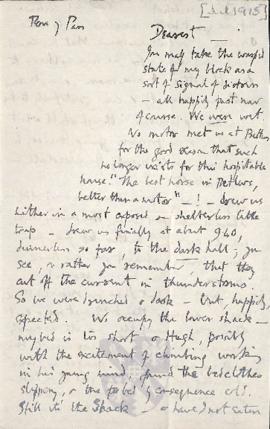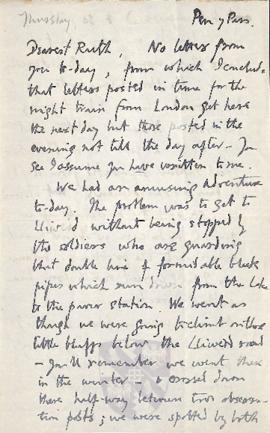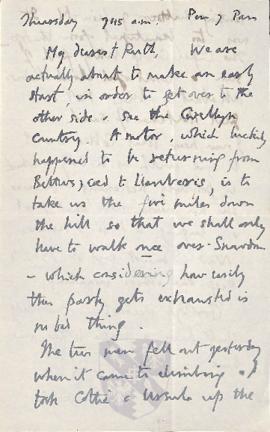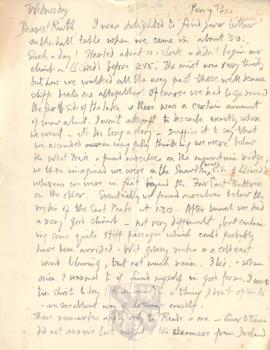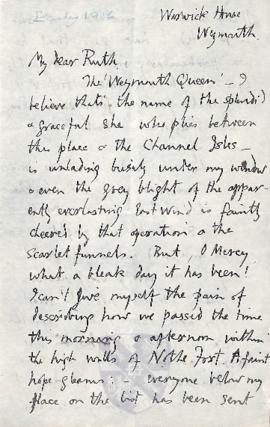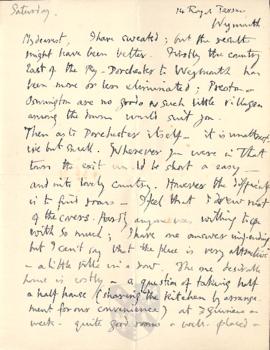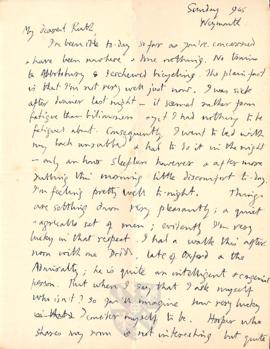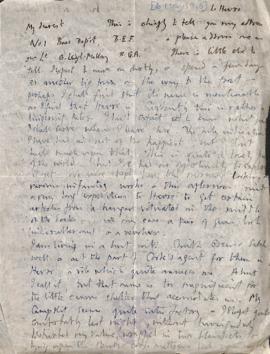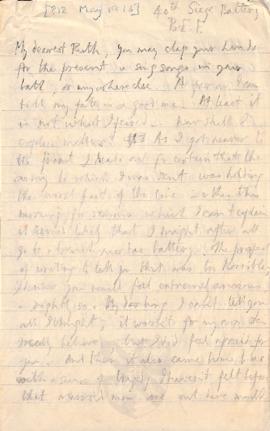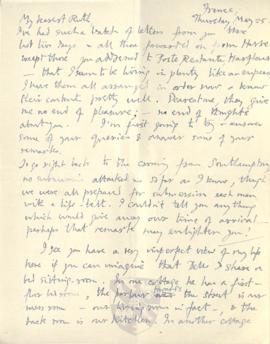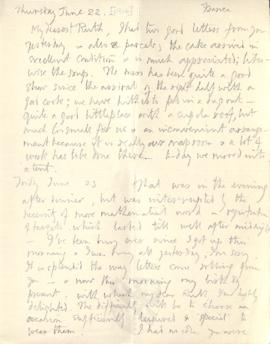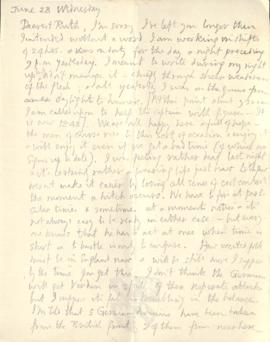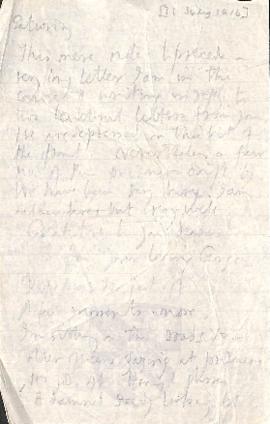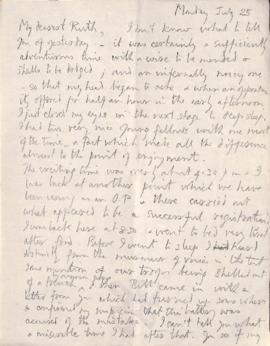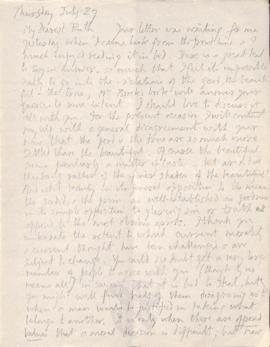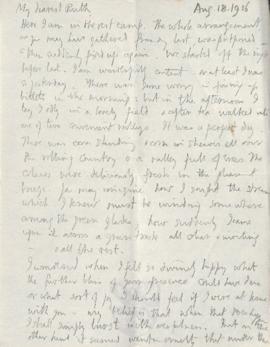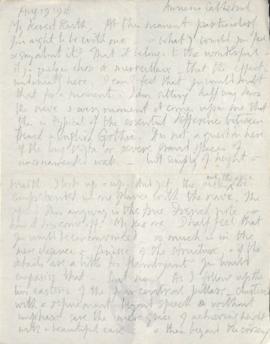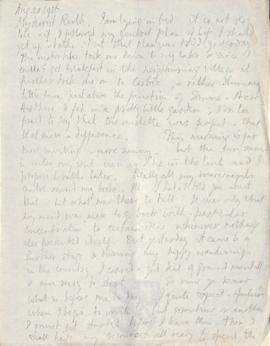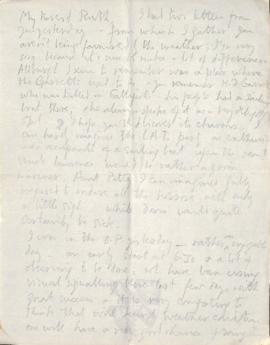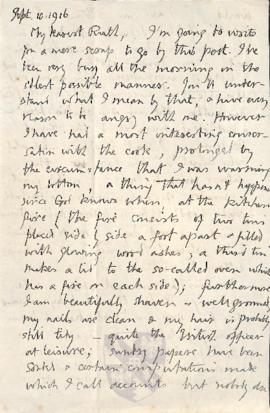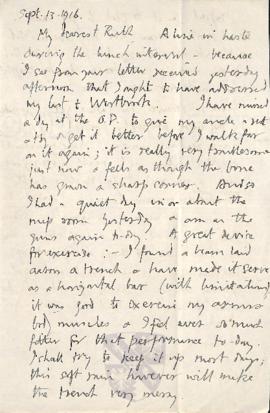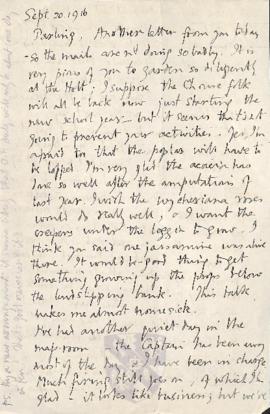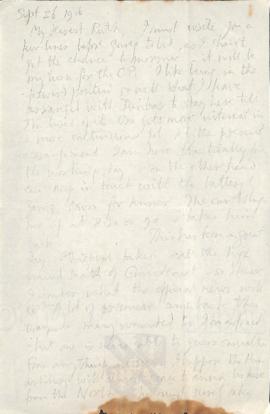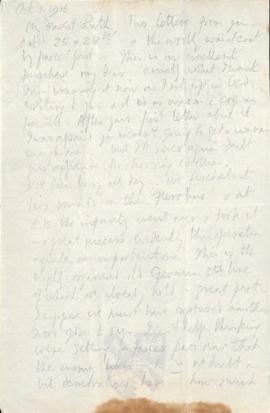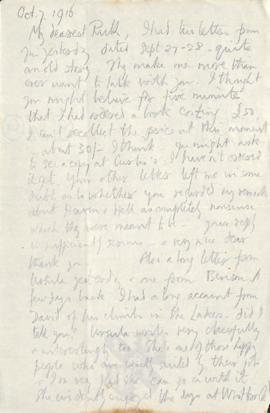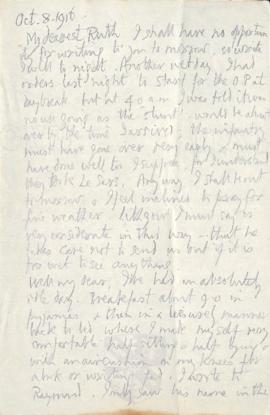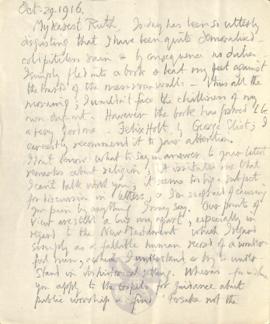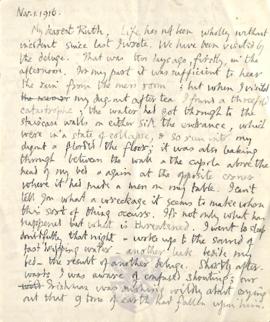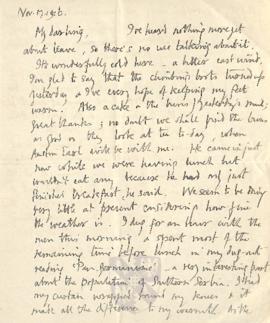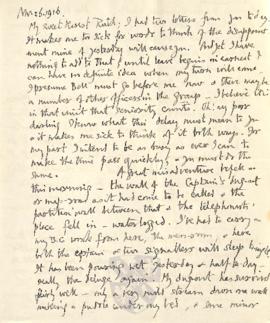Letter to Ruth Mallory written from France, 'Nov 26 1916' and 'Nov 27'
Discusses the possibility of leave and the disappointment of delays.
The partition wall between the Captain’s dugout, or map room as it had come to be called, and the telephonists’ place fell in as it was waterlogged. He had to carry out his Battery Command work from the mess room which was also where the Captain and two signallers would have to sleep. Deluge again which his dugout had survived with only a mild stream down one wall making a puddle under his bed and minor damage to the staircase walls. The big new work didn’t get covered in time and was in a mess.
Was going to plan the feast and festivities for the men’s Xmas.
Discusses the news from Romania.
[Letter continues 27 Nov] - The discomforts there would be nothing like those he experienced in Weymouth the winter before. The sordid room he had shared with Hooper and general messiness of No. 14 made him shudder to think of it. Her being at Abbotsbury redeemed it all.
He was glad she found time for reading and liked Boswell. It was time for her to read his book and then the Tour in the Hebrides. Ann Veronica [by H.G. Wells] made a sensation when it came out and he shocked people when he read it in Cambridge. Thinks she might enjoy Tono Bungay more.
He had heard from Polly - a long rigmarole of trivialities and she must have bored the Brocks. Says he has the keenest scent for detecting a bore and will go to any lengths to avoid them.
Her instructions for finding Bob Morgan would be thrown away as if the occasion arose he would be sent the other way.
Explains the problem with his ankle and that it was getting better.
